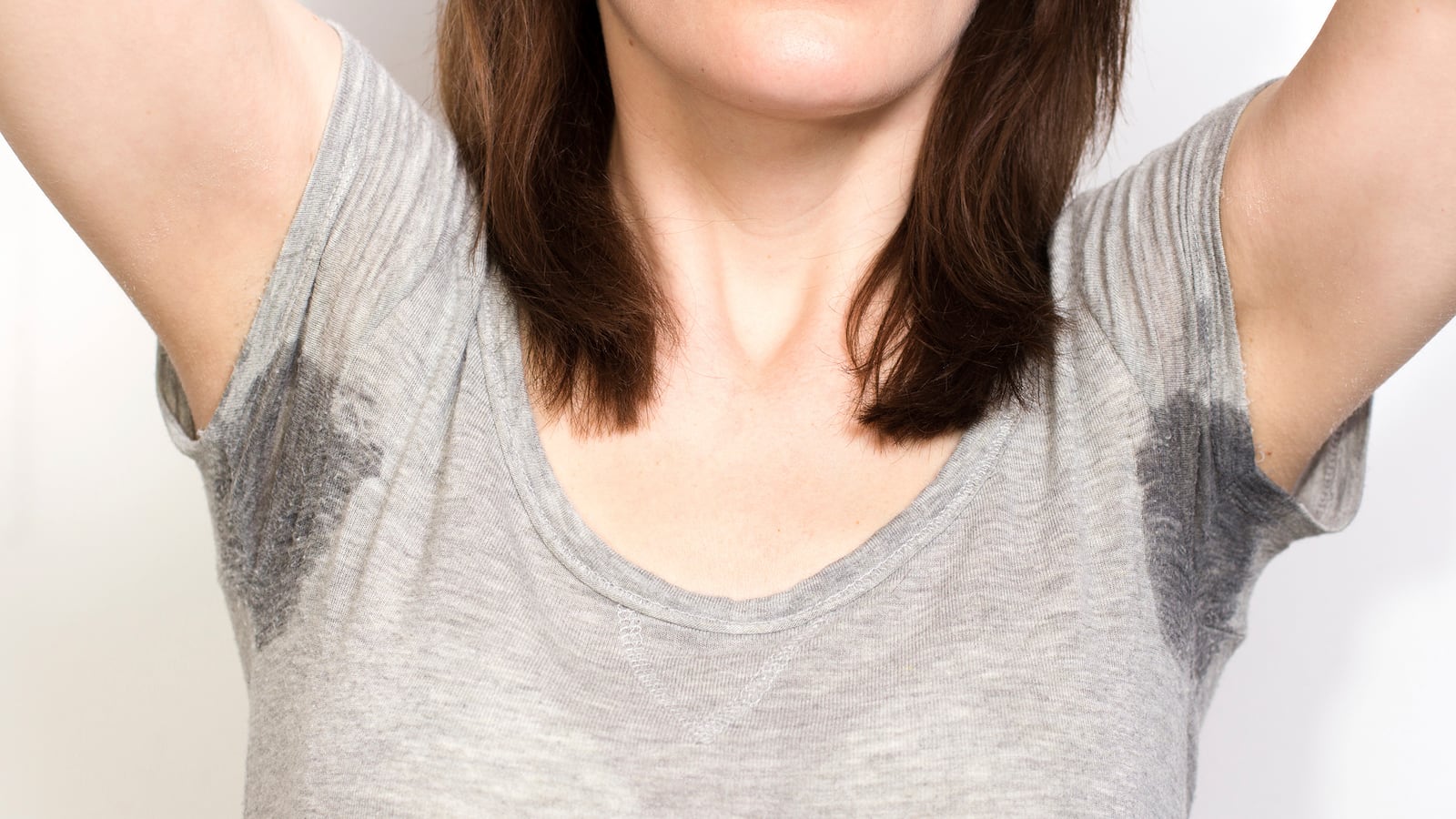Was Amy Roe really “sweat-shamed” while waiting in line at Starbucks, as she wrote in the Guardian recently—and, if she was, was this “shaming” on a par with Donald Trump bitchily ridiculing Marco Rubio’s propensity to perspire?
Even the story Roe sketches out doesn’t sound that damning, and certainly not damning enough to merit an entire article based around the supposed social stigma of women sweating, over which Roe keenly assumes the mantle of victimhood.
Roe was in her Starbucks, she writes, having just completed a 12-mile run.
“You look like you just did a class,” a well-dressed woman told her, giving Roe “the once-over.”
Roe writes that she had no idea what the woman meant so she said nothing—although it seems like a fairly basic, friendly enquiry.
“Or swimming?” this woman followed up, “with a tight smile,” Roe adds—as if the supposed heinousness of the remark needed underscoring. “Tight smiles” are just as villainous as outright cackling.
You already feel sorry for the poor other woman, trying to be friendly, and faced with the author’s puzzling incomprehension.
Roe gets her coffee—black, no half-and-half, she says, because she’s no wuss—gets to her car, and drops a pointless reference to some piece of Lululemon clothing she was wearing (maybe in the hope they’ll send her another). Then she suddenly realizes:
“I’d been sweat-shamed. Sweat-shaming is when someone points out your sweatiness as a way to signal disapproval. Like its counterparts, slut-shaming and fat-shaming, sweat-shaming is aimed mainly at women, who are actually not supposed to sweat at all.”
Now, I’m not sure where Roe lives and in what historical period. Perhaps, we missed her as the only Lululemon-wearing, 12-mile running character in Pride and Prejudice.
But here in 2015, where quite a few people run and go to gyms, the notion that women sweat is extremely obvious. My gym, for example, has many red-faced, matted-haired men and women, gasping and occasionally dripping. At times, they are even armed with a little towel to mop it up. OK, it can look a little gross, but they’re exercising, and it’s none of my business, really.
Sweat-shaming is merely the latest “shaming” extension to hit our language. Unfortunately, “shaming” is now the go-to overkill word when someone feels they have been criticized unfairly.
You can be “shamed” when really you’re just being criticized—“shame” means you are always primed to take personal offence, even when doing so seems entirely misplaced.
What might have happened in Roe’s case is someone saw that she was sweating, possibly heavily, and thought it looked momentarily striking. They proceeded to try to make some small talk about it, never realizing they were about to become The Social Issue of The Day.
Roe’s screed is a completely unnecessary whinge in which she takes to task all those who say women shouldn’t dare show their sweaty selves in public.
But who, in 2015, would expect a woman after heavy exercise not to sweat? Yes, there was a time when—as Roe puts it—a woman was expected to “glow” rather than drip, but that was also a time when ladies took perambulations carrying parasols in fine lace dresses.
Sexism may be grindingly persistent, but as far as women sweating after exercise goes, I hope we have made progress. Not so for our 12-mile suffragette: indeed she plans to “transgress” and have another coffee after her next mega-run.
“The stigmas surrounding women’s bodies are powerful, but they’re no match for how powerful I feel after running,” Roe says.
Well, good for her. But, even on the strength of her own flimsy evidence, was she really dissed at Starbucks?
One woman seems to have politely made conversation and then made a gentle joke about Roe perspiring so visibly. Even presented as a supposedly rude remark, it doesn’t sound that rude.
If there has been historic distaste over women sweating, that distaste or embarrassment is now universalized to men.
If the incident at Starbucks had happened to a male runner, he too may have been looked at in the same way as Roe was—assuming the lady concerned cared that much, which I am not convinced she did.
People who look askance at anyone sweating after exercise is a bit silly and to be ignored. The red-faced, puffed-out man is just as likely to be remarked upon as the red-cheeked, sweating woman.
Today, men sweating are more regularly pilloried and ridiculed than women in the public eye, as seen in the most recent Republican candidates’ debate.
The grouped candidates’ waterworks was noted by Twitter that night.
In an interview with Kilmeade & Friends on Fox News Radio, Donald Trump reiterated the perspiration criticism, though he emphasized Rubio’s problem was shared. “Marco Rubio, I’ve never seen anybody sweat like that. You know, a lot of these guys are serious sweaters, frankly, but it was extremely hot in the room and extremely uncomfortable,” the bombastic presidential candidate said.
The difference between Roe and Rubio is that she feels she is being made to feel gross because sweating is perceived as unladylike, whereas Trump is actually using Rubio’s sweat to humiliate him.
Sweating is a visible manifestation of our bodies, its sight perceived as weakness in men. Certainly, if a man sweats on the sports pitch, it’s sexy. However, under TV lights in a suit on a podium, he just looks silly.
Trump turned even bitchier about Rubio’s penchant for perspiration on a recent Morning Joe appearance: “He sweats more than any young person I’ve ever seen in my life…I’ve never seen a guy down water like he downs water…They bring it in buckets for this guy.”
That, Ms. Roe, is definitive “sweat-shaming”—someone’s sweat used to humiliate and belittle them publicly.
Still, enjoy that “transgressive” coffee if it makes you feel more secure in your own dampened victimhood.





